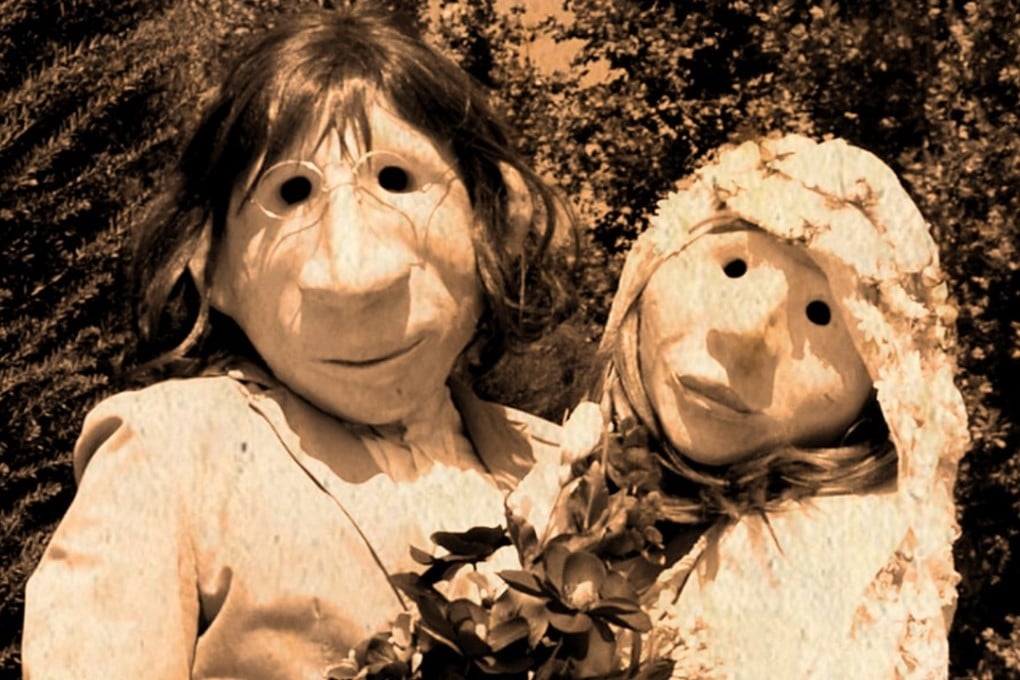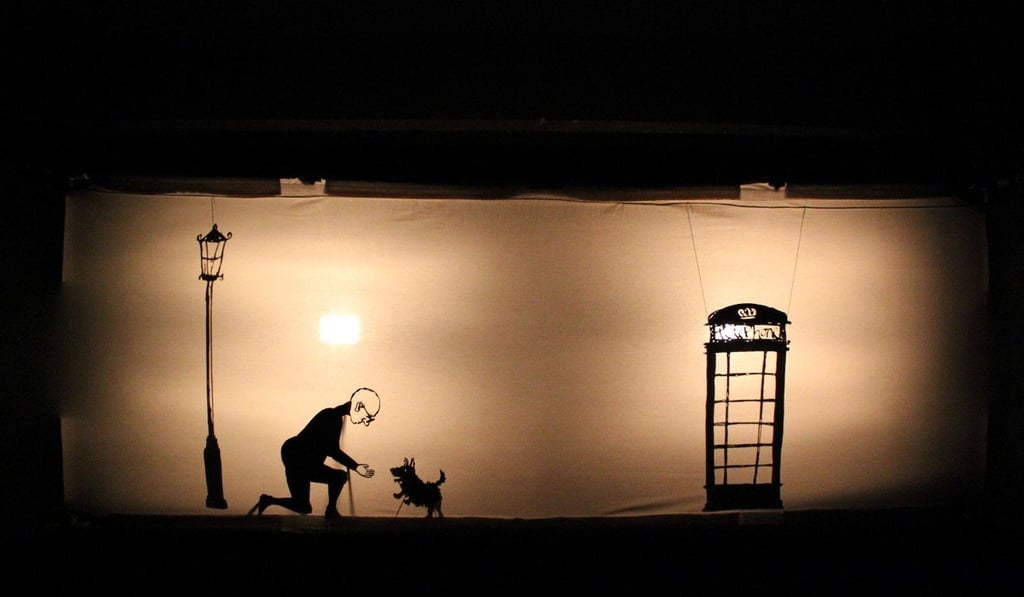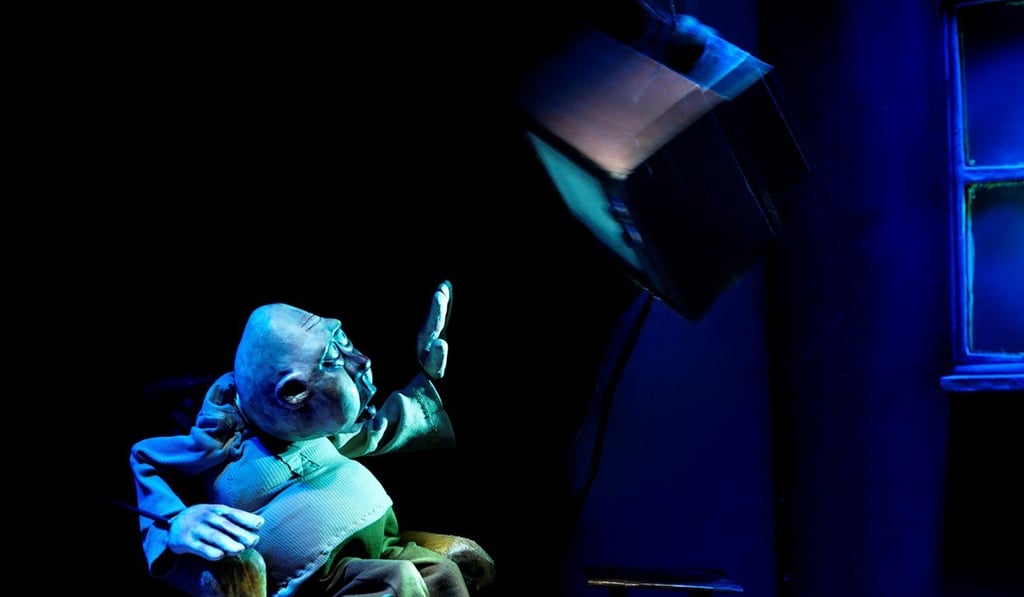Human Stories in Puppetry series in Hong Kong are a celebration of life
Memory loss, motor neurone disease and the loneliness of the human condition promise a bittersweet, sad-humorous, and simple-perplexing journey into what it means to be alive in Hong Kong this autumn

It’s 1947 and a 24-year-old Austrian Jewish scientist (still reeling from meeting Jean-Paul Sartre a few months before, and with the manuscript written for his own first existential philosophy book as a result) meets a young British woman on her first European adventure , at a card game in Lausanne, Switzerland. It is, apparently, love at first sight.
It’s not recorded who won the game, but two years later the philosopher André Gorz and his “supreme, beautiful, witty” wife Dorine were married, and they lived together for nearly 60 years.
Until in September 2007 they were found, lying side by side in their home in France, dead by lethal injection in a suicide pact, after Dorine had fallen terminally ill and incapable, and Gorz had cared for her.
The year, before, Gorz had published a moving 75-page letter (Letter to D. Story of a Love).
“You will soon be 82,” he wrote. “You have shrunk six centimetres and you weigh just 45 kilos and you are still beautiful, gracious and desirable … It is now 58 years that we have lived together and I love you more than ever.’”

After the couple died, the book became a bestseller and two of the many who read it were Spanish puppeteers Jose Dault and Garbine Insausti, who were so moved it inspired them to think about how they could show the story of love in old age through what they did best: puppets.
The result, called André and Dorine (though the André and Dorine characters in it have different lives and medical issues to Gorz and Dorine) will open in Hong Kong ‘s Sheung Wan Civic Centre theatre from September 22-24.
It sounds sad, and reviewers have said they cried when they saw Kulunka Theatre’s show about forgetfulness and Alzheimer’s as well as love and long life, but it has had standing ovations, and its mixture of humour and tenderness has won critics over from Spain to New York to California.
“Unless you’re having a baby Saturday night, see this show,” said the Los Angeles Stage & Cinema magazine. “If you are, see it Sunday.”
Another theatre group to use puppets to show illness is a collaboration between the vividly named Smoking Apples and Dogfish puppet companies.
When the creative team decided to make a work about motor neurone disease (MND), a group of diseases that affect the nerves in the brain and spine that tell the muscles what to do, and made known to the wider world by physicist Stephen Hawking, the first step was to visit people with the disease, and also talk to those who treat it.
They spent some time at a hospital in Putney, southwest London, which specialises in neuro-disability. And what they found to their surprise, in this place where people were coming to terms with themselves, or those they love, being slowly imprisoned by their increasing inability to move or speak, was “an overwhelming feeling of positivity.”
This discovery of a kind of joy and light amid darkness led to them creating the wonderful narrative journey of a character, Ted, deciding to defy his illness, and set off inter-railing in Europe in the work titled CELL, which will be at Ngau Chi Wan Civic Centre from November 10-12.

“Puppetry relies so much on movement in order to sustain the illusion and the audiences’ belief so we wanted to try creating a show in which that gets stripped away,” says co-artistic director Molly Freeman.
“The idea of positivity in adversity and Ted experiencing life outside of his comfort zone became an integral part of the story and the travelling allowed us to really show the degeneration of his movement.”
There is a paradox that runs throughout the show that MND causes a person to lose their animation but as puppeteers we are reanimating Ted.
A third take on the theme of puppets telling stories that could be uncomfortable, or beautiful, is Clown’s House by German-based Merlin Puppet Theatre (at Hong Kong Cultural Centre’s Studio Theatre from October 6-8) which bills itself as “a puppet theatre for the human nothing.
“They were simple beings… they had a simple life… until…” teases the trailer for the show.
One character finds he can touch the television and it moves towards him and then floats up to the ceiling. Another man sits on the toilet reading, and tries to ignore the conversations and arguments and shadows of noisy teenage musicians he can hear through the “paper-thin” walls.
It's inspired by a poem by English modernist poet Edith Sitwell, daughter of a Yorkshire baronet, born with a spinal problem which resulted in many childhood hours spent, on her father’s orders, locked in an iron frame. Possibly as a result, she was finely attuned to loneliness and the idea of being imprisoned by structures.

Merlin Puppet Theatre brings different puppetry techniques in Clowns' Houses, a story is about six residents living at five apartments in the same building, trapped with their fears, obsessions and loneliness in the prison-like dark houses. Memory loss, motor neurone disease and the loneliness of the human condition. It doesn’t seem like a jolly line-up. But the puppet shows coming to Hong Kong this autumn promise to be a bittersweet, sad-humorous, and simple-perplexing journey into what it means to be alive.
All are part of the Human Stories in Puppetry series in Hong Kong, which is part of a trend to use puppets to tell truths in the way that actors cannot always do.
So in War Horse, the award-winning stage show that opened in China in 2015,each of the four-footed protagonists are played by several silent puppeteers who can make the horses come alive, and feel, and move and of course die. Or in the new indie independent film A Change in the Weather, which came out this summer, about actors on a shoot in France, filming a film about a love affair over many decades, the central, unexplained but beautiful scene shows three actresses (representing the same woman in three different stages of her own life) each dancing in turn with a life-size puppet, as if life itself is a dream and a dance.